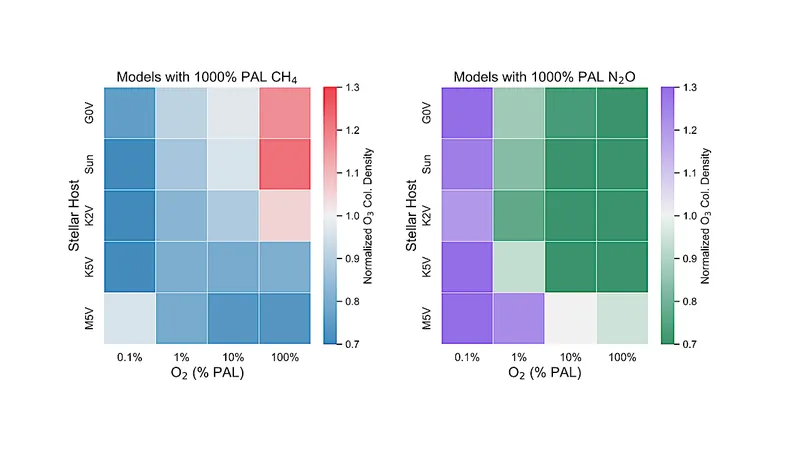
The Hidden Struggles of Hidradenitis Suppurativa: A Link to Depression and Anxiety
2025-08-12
Author: Siti
The Silent Battle of Hidradenitis Suppurativa Patients
If you think living with hidradenitis suppurativa (HS) is just a physical struggle, think again. Recent research published in JAMA Dermatology reveals that those suffering from HS face significantly higher rates of depression and anxiety compared to their peers without the condition.
What is Hidradenitis Suppurativa?
Hidradenitis suppurativa is a painful, chronic skin disorder characterized by inflamed lesions and unpleasant discharge, primarily affecting areas where skin rubs together, like armpits and groin. This condition impacts about 1% to 2% of the population, with a disproportionate number of women among them. Tragically, patients often endure an average diagnostic delay of seven years, worsening both their physical and mental health.
A Web of Comorbidities and Mental Strain
Beyond the skin, HS is linked to various serious health issues, such as cardiovascular disease and inflammatory bowel disease (IBD). These comorbidities may be driven by systemic inflammation, obesity, smoking, and genetic factors, amplifying the mental health toll. Studies show that HS patients experience alarming rates of depression and anxiety, particularly among women and those grappling with substance use disorders.
The Alarming Findings from the New Study
In a groundbreaking nationwide study tracking Danish residents from 1997 to 2022, scientists noticed that those with HS were 52% more likely to develop new-onset depression or anxiety during the follow-up period. Notably, patients using biologic treatments showed a markedly reduced risk of depression, raising questions about treatment options and outcomes.
Understanding the Severity of the Condition
Researchers categorized HS severity based on the types of treatment—topical, systemic nonbiologic, or biologic—and the number of surgeries related to HS. While those requiring more surgeries faced higher risks, the study found that biologic treatment can significantly influence mental health outcomes.
Implications for Patients and Healthcare Providers
The study underscored a crucial message: all HS patients should be routinely screened for signs of depression and anxiety, regardless of the severity of their condition. Despite having prior episodes of mental health issues, HS patients did not have a markedly higher chance of recurring mental health problems during the study's follow-up, offering a glimmer of hope.
Call for Further Research and Awareness
With its comprehensive analysis and large sample size, the study points to the pressing need for further investigation into mental health challenges faced by HS patients. Mental health deserves equal attention as physical health, emphasizing the need for tailored treatments and holistic care.
A Hopeful Outlook
As awareness of the mental burden associated with hidradenitis suppurativa grows, clinicians and caregivers are urged to take a proactive step in addressing these often-overlooked challenges. The future holds potential for improved health outcomes through better understanding and treatment of both the physical and mental aspects of this chronic condition.





 Brasil (PT)
Brasil (PT)
 Canada (EN)
Canada (EN)
 Chile (ES)
Chile (ES)
 Česko (CS)
Česko (CS)
 대한민국 (KO)
대한민국 (KO)
 España (ES)
España (ES)
 France (FR)
France (FR)
 Hong Kong (EN)
Hong Kong (EN)
 Italia (IT)
Italia (IT)
 日本 (JA)
日本 (JA)
 Magyarország (HU)
Magyarország (HU)
 Norge (NO)
Norge (NO)
 Polska (PL)
Polska (PL)
 Schweiz (DE)
Schweiz (DE)
 Singapore (EN)
Singapore (EN)
 Sverige (SV)
Sverige (SV)
 Suomi (FI)
Suomi (FI)
 Türkiye (TR)
Türkiye (TR)
 الإمارات العربية المتحدة (AR)
الإمارات العربية المتحدة (AR)